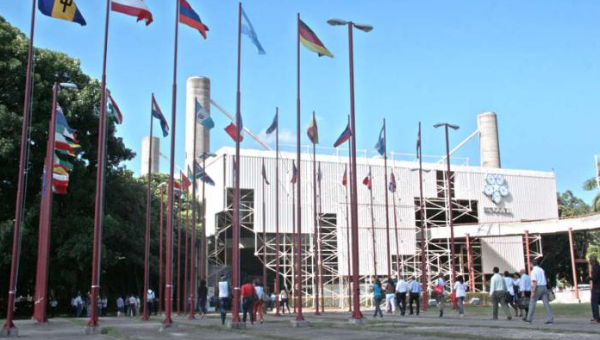Cuba's Innovative Biotechnology Attracts Global Attention
Telesur | Wednesday, 4 November 2015 | Click here for original article

Cuba achieved food security without destroying its environment, and the rest of the world has taken notice.
Cuba is presenting several of its original biotechnologies at an international business fair this week, drawing further attention to a sector of the Cuban economy that’s been generating substantial interest abroad.
The Cuban Center for Genetic Engineering and Biotechnology presented various biotechnological innovations at the fair: all eco-friendly and biodegrable alternatives to conventional technologies, which could help the transition toward a more sustainable model of agriculture.
Among them was, “Gavac,” an immunogen that provides for better control over ticks and tick-related infections in cattle, according to Doctor Hector Machado of Cuba’s Heber Biotec company.
Gavac's formula reduces the use of chemical insecticides, noted Machado, while diminishing the risk of diseases being transmitted by ticks, improving an animal’s natural capacity to respond to an infection without increasing their resistance to treatment.
Gavac has already been commercialized in Venezuela, Mexico, Colombia and Brazil. Its awaiting approval for use in Nicaragua, Panama and Costa Rica.
Other biotechnological products included Acuabio's range of nutritional complements used in aquaculture in order to boost the growth of larva and enhance their immune systems until they become adults, providing them better defenses against infections.
The HeberNem eco-friendly insecticide against roundworms, or nematodes, is also increasingly popular within Cuba, and will be presented in the fair this year.
The fair – one of the largest business events in the Caribbean – aims to attract investment in Cuba. This year, a few dozen U.S. firms are attending the fair, the first time U.S. companies have attended since the fair was launched 33 years ago.
Cuba has been attracting attention in recent years for its model of agriculture, as it has been able to develop cheap and eco-friendly technologies that have helped the country to reach a certain level of food security without damaging the environment. With the environmental and financial challenges the world is now facing, the Cuban model – built in a time of crisis, after the USSR collapsed – is seen as offering potential solutions to many countries in the world.






